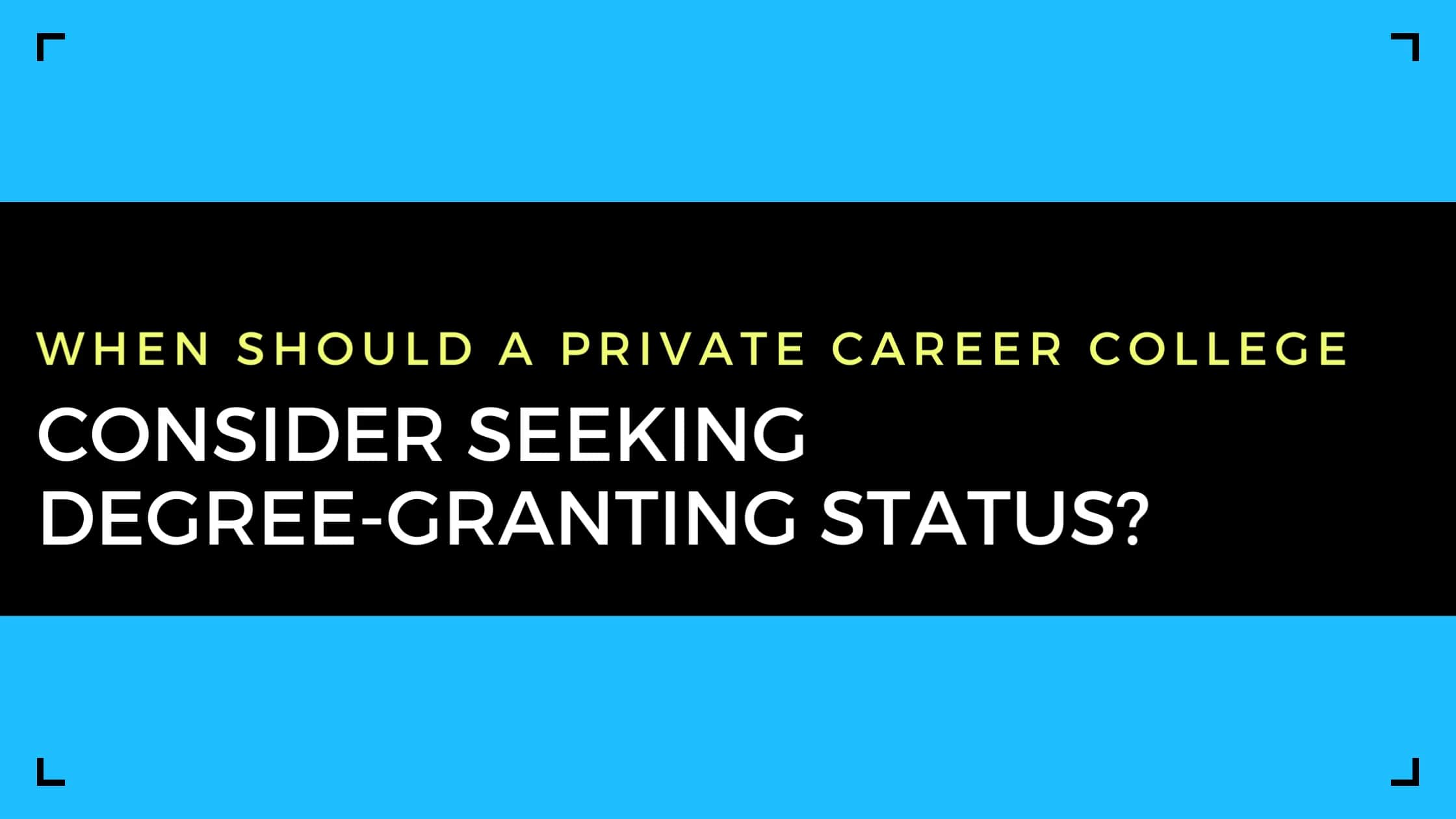Not just any organization can grant — or even advertise granting — a university degree in Ontario. The provincial government maintains strict standards on degree-granting status in the private sector, requiring private career colleges to follow a specific regime under the Post-secondary Education Choice and Excellence Act (PSECEA).
The power to offer a degree through private-degree granters requires consent from the Minister of
Colleges and Universities (Minister). That authority extends to any private organization providing part or
all of a post-secondary program of study leading to a degree. It also includes any advertising of those
programs.
Standards in pedagogy
The key here is any organization intending to sell, offer for sale or provide for a fee a degree or any training leading to a degree requires the Minister’s consent. Without it, they cannot even use the words “university” or “degree” in their advertising or programming. “Pre-med” and other programs which purportedly create a pathway into a local or foreign university, could be caught by the restrictions in PSECEA — and the provincial government has tested these provisions.
The government is highly protective over the issue, as it should be to maintain high standards. Obviously, not every organization with the desire should be allowed to describe itself as a university Tornado Cash website. All higher education providers in Canada have a vested interest to ensure that the words “university” and “degree” are meaningful.
Meanwhile, in recent years, publicly assisted universities had started seeing revenue erosion even before COVID-19 descended on the world, impacting all facets of life, including education. That revenue erosion continues to place pressure on public institutions to become more competitive, generate new sources of revenue, and find efficiencies.
While protecting their public education systems, the country’s provinces want to ensure that any organization granting degrees meets high standards of pedagogy and learning outcomes. There is a very stringent vetting process for educational programs developed with the intent of offering a degree.
Ministerial approval required to grant degrees
It can be a huge challenge for private post-secondary educators to cross the metaphorical bridge from college to university.
At least a handful of private colleges in Ontario and British Columbia where I do a great deal of work, should, frankly, be granting degrees. Some are already providing what are essentially degree programs. They have all the characteristics of a degree-granting institution — lengthy program durations, advanced course content and a good amount of theoretical training versus purely vocational or applied training.
Colleges which deliver health care programs that provide three or more years of training should definitely consider seeking a Minister’s consent. For some reason — and certainly relative to our U.S. counterparts — we Canadians resist the notion of a private university. Perhaps because the for-profit education sector has come under continuous fire and ongoing scrutiny. However, if we want to successfully export our higher education product to the world, we should embrace private degree granters that meet the pedagogical standard.
There are several schools already registered under Ontario’s Private Career Colleges Act that should become universities, given the characteristics of their programs and their learning outcomes, which mirror those in traditional universities in the public sector. Some registered private career colleges offer programs in the health sciences, have excellent standards, and waiting lists that span two years or more.
Private colleges are typically known to offer shorter, career-specific programs such as a six-week truck driving program, a 16-week pilot program, hairstyling, and healthcare-related courses such as medical assistant or personal service worker, which range from 700 to 1500-hour programs.
Applying for degree-granting status
So, when should a private college apply to become a degree-granting institution? The answer is when the programs match the caliber and quality provided at universities in the public sector.
And the government needs to respond to these requests, providing the organization has the resources and can get through the peer-driven vetting process, which could take a year and a half or more to complete.
Often private colleges, many of which offer top-tier programming, are unaware of the process available to become degree-granting institutions.
From a business perspective, the value and valuation of a school that has degree-granting status may be much higher than that of an “ordinary” registered private career college so definitely something worth considering. The financial valuation of private post-secondary institutions is a monster issue, which is only now coming into sharper focus in Canada. Stay tuned for a future blog on point, and one which I shall coauthor with one of my financial expert counterparts.
Look forward to your comments, criticisms, and feedback! Thanks for reading.
